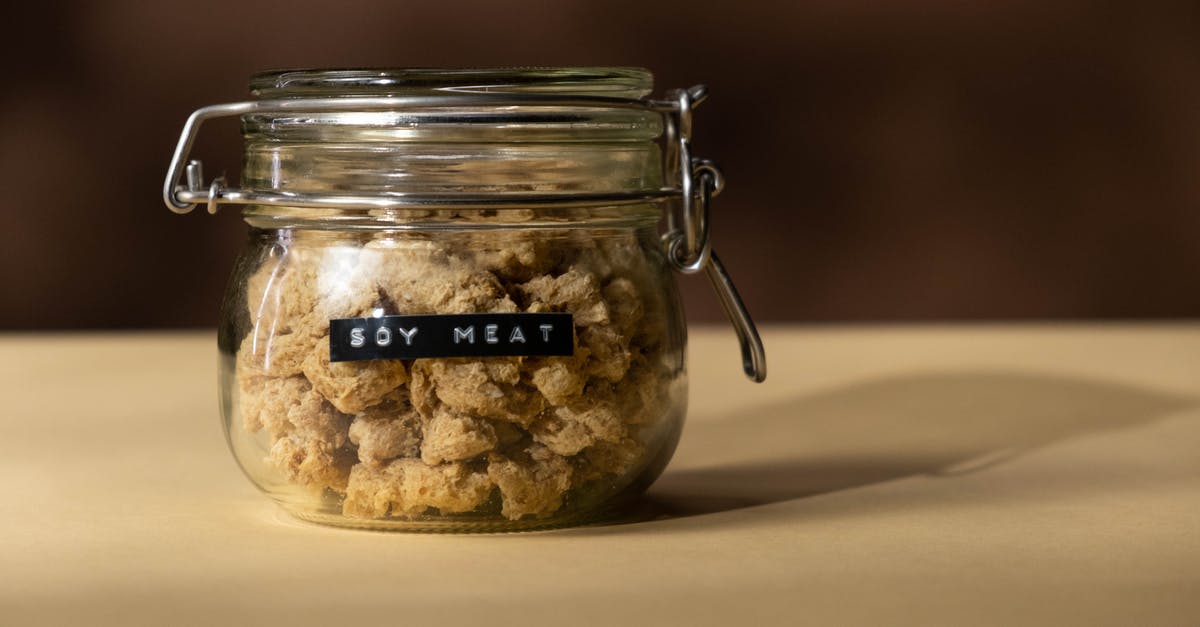Are there any vegetarian applications for transglutaminase ("meat glue")?

Transglutaminase is an enzyme that is popular among modernist chefs for two main purposes - to glue different meats together for special effects (like a modern turducken), and to create consistently shaped and sized portions for even cooking.
My question is whether there are any known vegetarian applications for this enzyme? Has it been used with (say) tofu, eggs, or cheese? Is there a way to combine it with another protein to get it to glue lower protein things together like most vegetables?
Best Answer
As a matter of fact, here is a link to a PDF of a technical article that talks all about using microbial transglutaminase on vegetable proteins. This article is not for the scientifically faint-of-heart, and it does not contain recipes, but it does review ways industry has found to use transglutaminase in making vegetable-based food products, using things such as soy, wheat, rice, pea, sunflower, and sesame.
I have never tried using it to mix vegetable proteins with animal proteins, but chemically speaking it should work. Unfortunately, I have no source of recipes; you might just have to experiment.
Pictures about "Are there any vegetarian applications for transglutaminase ("meat glue")?"



More answers regarding are there any vegetarian applications for transglutaminase ("meat glue")?
Answer 2
As far as I know, most transglutaminase on the market currently is of microbial origin. That is definitely true of the "Activa" brand transglutaminase formulations, manufactured by Ajinomoto.
Transglutaminase crosslinks glutamine and lysine amino acids, which are found in almost all proteins - not just in meat, but also in eggs, nut or bean based proteins, etc. In fact, you can use transglutaminase to coagulate nut milks to make a vegan cheese, as demonstrated by Cashewbert:
http://www.cashewbert.com/en/transglutaminase-ti.html
For more info, Dave Arnold's primer on transglutaminase on the Cooking Issues blog is a wonderful resource on all things transglutaminase:
http://www.cookingissues.com/transglutaminase-aka-meat-glue/index.html
Answer 3
To answer my own question, years later, it turns out that Activa RM can be used to make a phenomenal veggie burger: https://www.chefsteps.com/activities/hi-tech-mushroom-burger. Full disclosure, I work at ChefSteps, but I didn't when I asked this question!
Answer 4
I'm relatively certain that transglutaminase will only bond proteins found in animal flesh or products (it is used sometimes to make milk seem creamier, for example).
I'm pretty certain, also, that it's derived from animals making it unsuitable for vegetarian applications.
Answer 5
Oh, by all means. Take a peek at the two different veggie burger options at ChefSteps.com. Unfortunately everything I read states the enzyme is derived from meat or vegetable products nad I can't find "vegan" Transglutaminase. If anyone knows of a strictly plant based extract of said enzyme, please pass it on!
Sources: Stack Exchange - This article follows the attribution requirements of Stack Exchange and is licensed under CC BY-SA 3.0.
Images: Castorly Stock, Grooveland Designs, cottonbro, cottonbro
